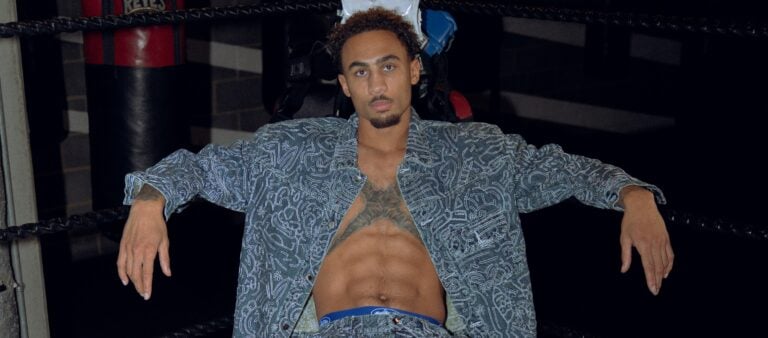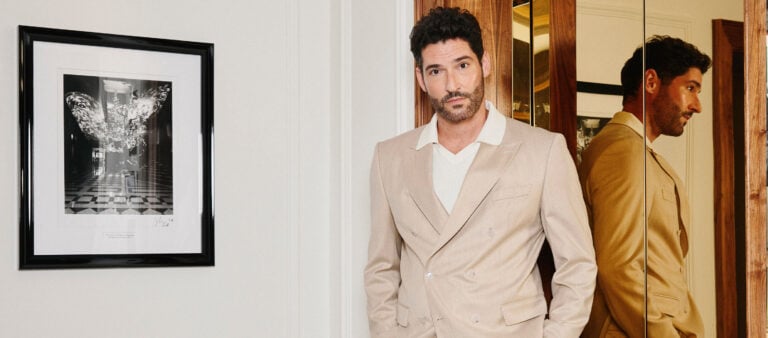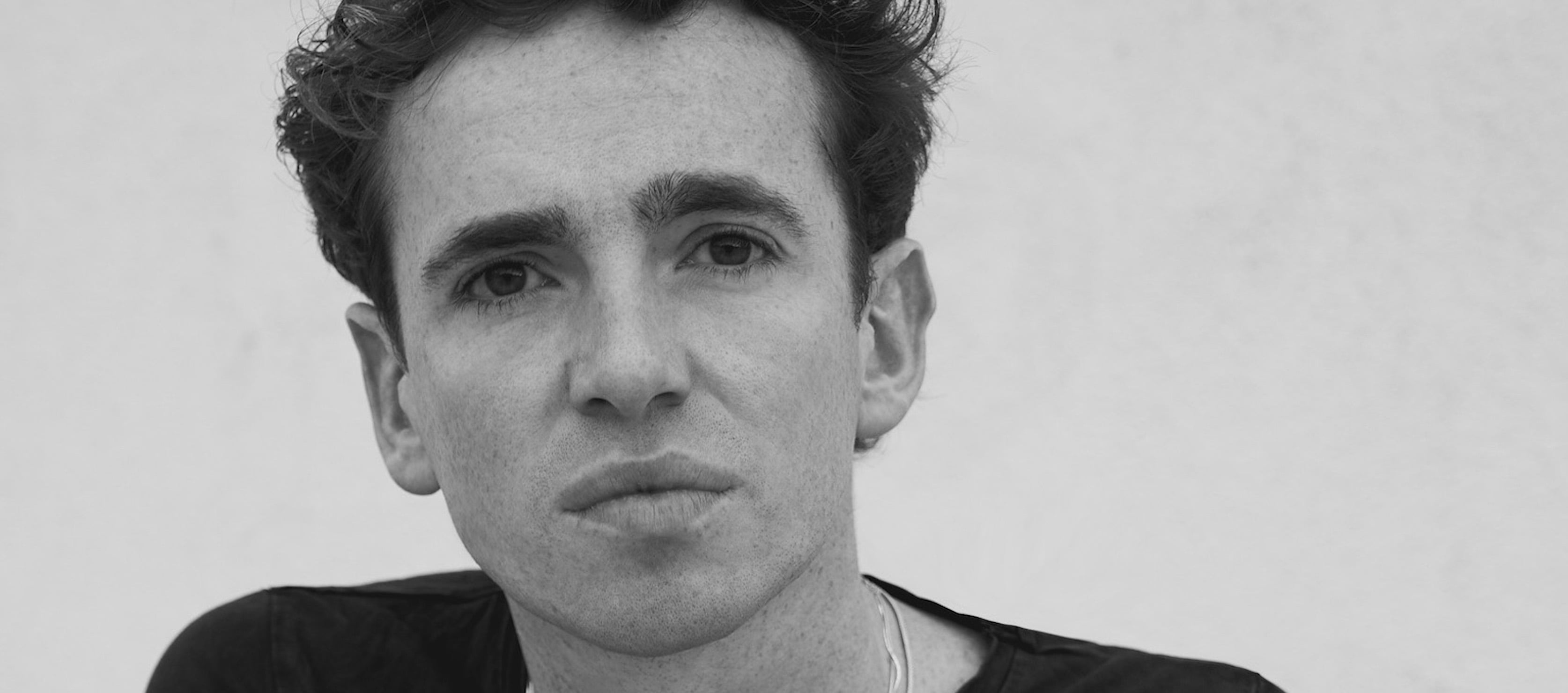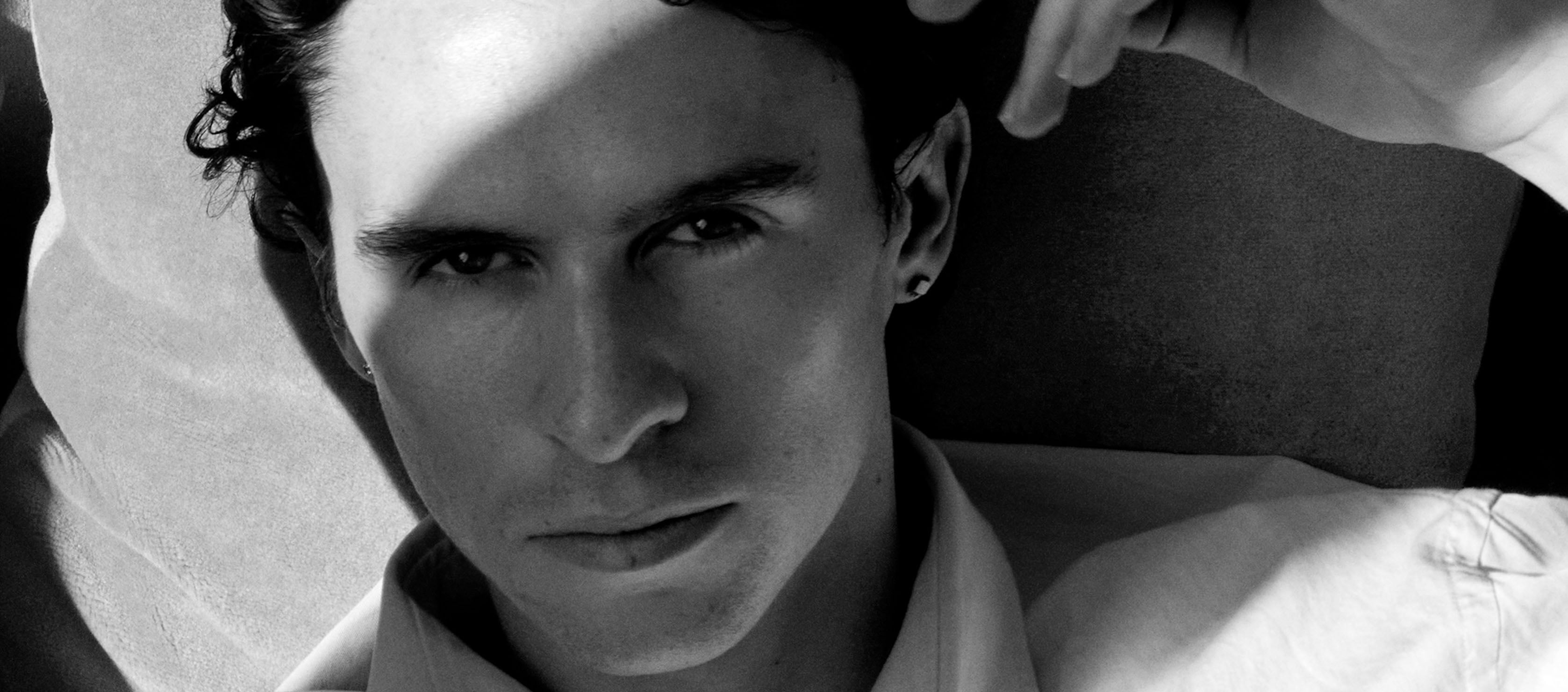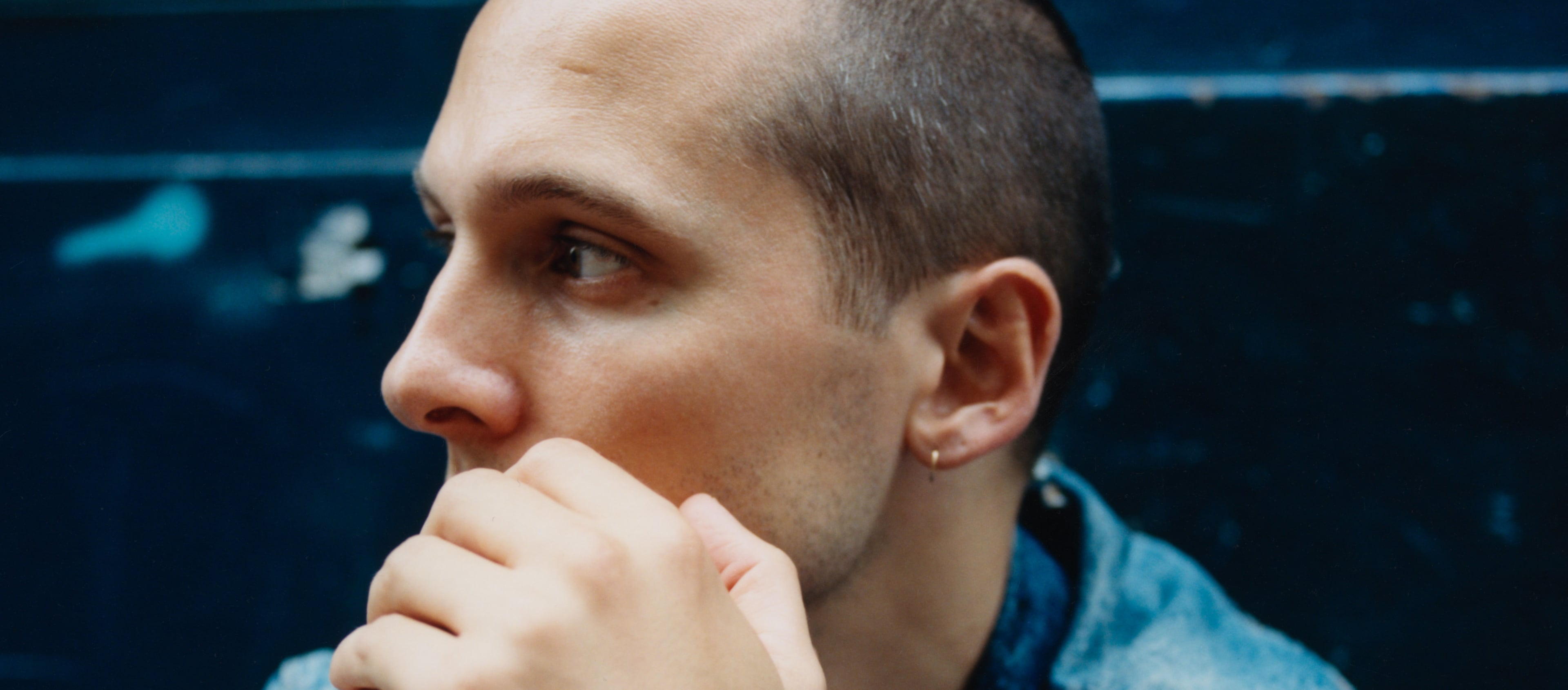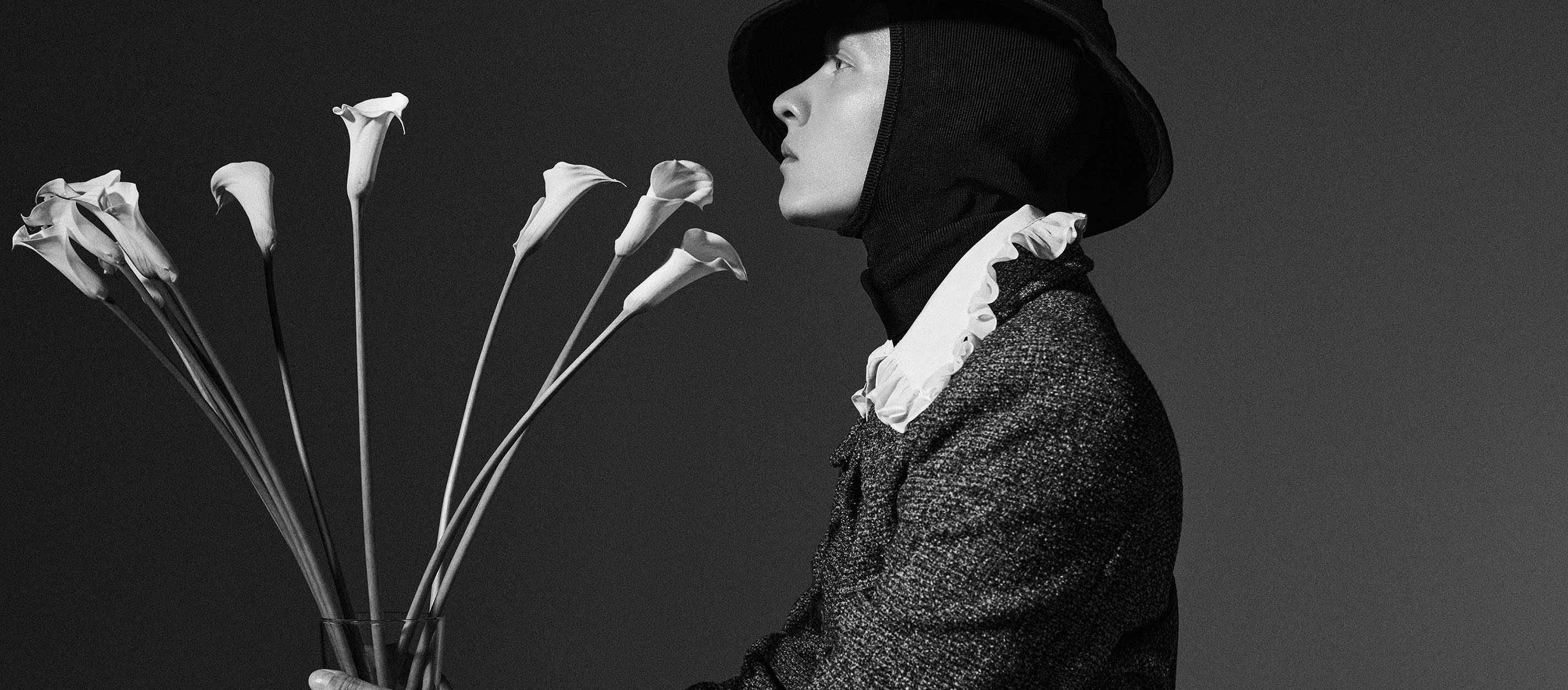The British-Nigerian actor is not looking for one big breakout role, but with his quietly authoritative turn in Akinola Davies’s My Father’s Shadow, he’s leaving an indelible mark on the cultural imagination. The first Nigerian film to secure official selection at Cannes, it’s already revered and history-making ahead of its theatrical release. For Dìrísù, it was a chance to foster his connection to his heritage.
Acting is rooted in empathy: the resonance you feel for the character you are portraying, finding their agony, ecstasy, and everything in between. In some instances, that emotional consolidation might be trickier than others. Spare a thought for Man About Town Autumn/Winter cover star Charlie Hunnam, stepping into the mind of serial killer Ed Gein for the new season of Ryan Murphy’s Monster. But, occasionally, an actor might not have to push themselves to decode the joy, struggle, and trauma that consume their screen muse. When that role finds them, not only can they deliver their technical best, but they can celebrate, learn, and heal from within.
For London-born Sopé Dìrísù – a 2021 Bafta Rising Star nominee, much-touted future James Bond and Gangs of London favourite – his casting as Folarin in Akinola Davies Jr’s My Father’s Shadow lit a passage to committing his affinity with his Nigerian heritage to the screen. The coming-of-age drama documents the fleeting return of an absent father (Dìrísù), through the eyes of his young sons, in a day spent together in Lagos with personal and political reverberations to last decades. “I’m Nigerian, my parents are both Nigerian,” Dìrísù explains, dressed casually, jovial but focused, calling in over Zoom, squeezing in an hour for his Man About Town interview amid a busy schedule filming new projects. “I’ve never lived there, but I’ve been there so often in my life, so before even reading [the script], knowing that this project was going to allow me to really share my understanding of Nigeria with the world, I was immediately 100% in.”
He was so invested, he admits he might have even signed on the dotted line if the screenplay for Davies Jr’s debut feature – written with the British-Nigerian filmmaker’s brother Walé – didn’t match up to Dìrísù’s usual standard of repertoire. His CV has also encompassed AppleTV+ modern classic Slow Horses, a BIFA-nominated appearance in 2020 horror-thriller His House and the work of The Bard, himself – Dìrísù was nominated at the 2018 Ian Charleson Awards for his titular turn in The Royal Shakespeare Company’s Coriolanus. Thankfully, however, the Davies brothers’ writing could carry itself on the page, and that quality translated when the cameras were rolling, too. This year, My Father’s Shadow became the first Nigerian film ever to secure an official selection at Cannes, receiving a special mention in the Caméra d’Or award during the festival in May. “It was actually just a blessing that [My Father’s Shadow’s] script was as good as it was,” Dìrísù enthuses, “because it meant that the desire and passion to engage with this role only increased after reading it.”
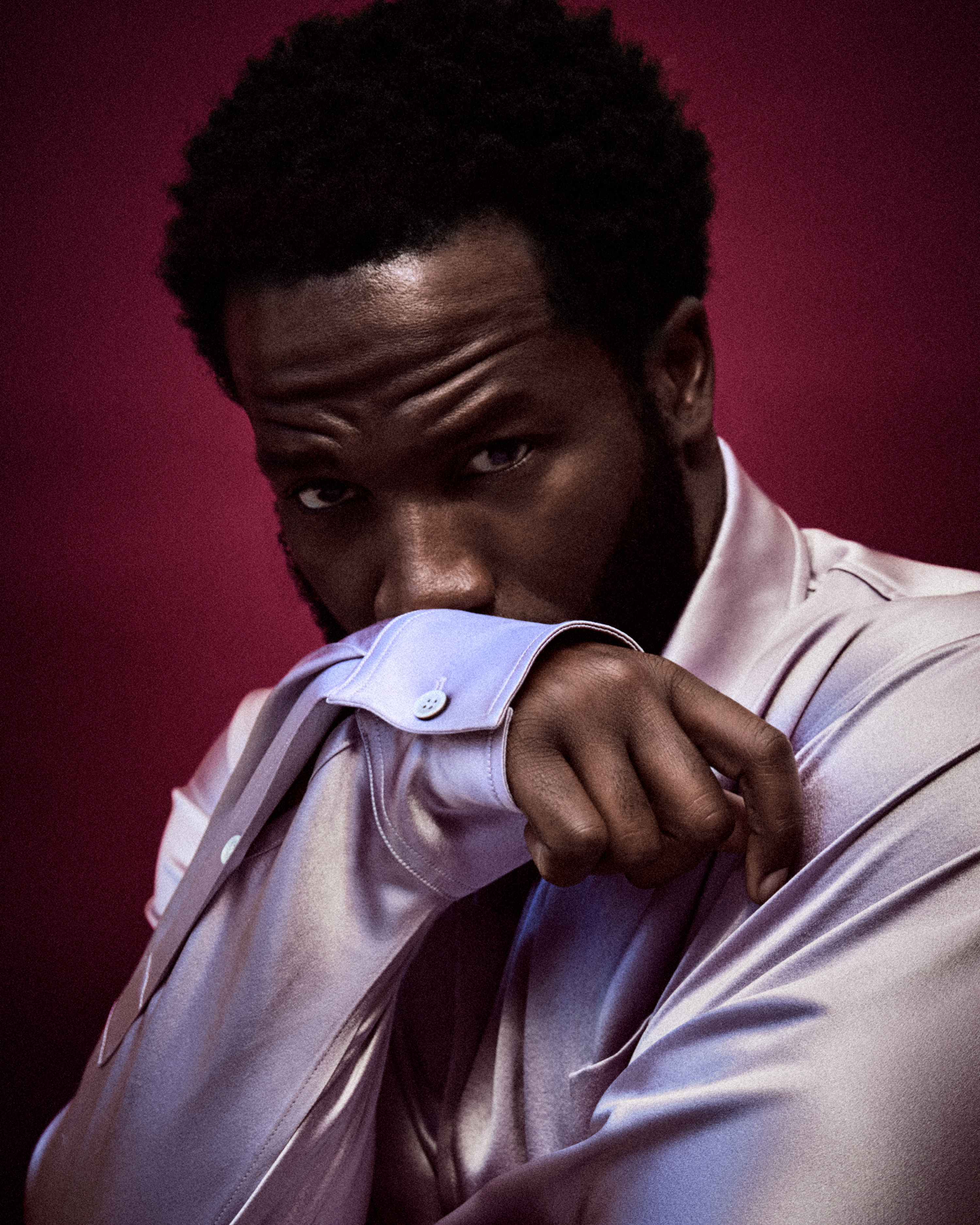
Ṣọpẹ́ wears shirt Solid Homme
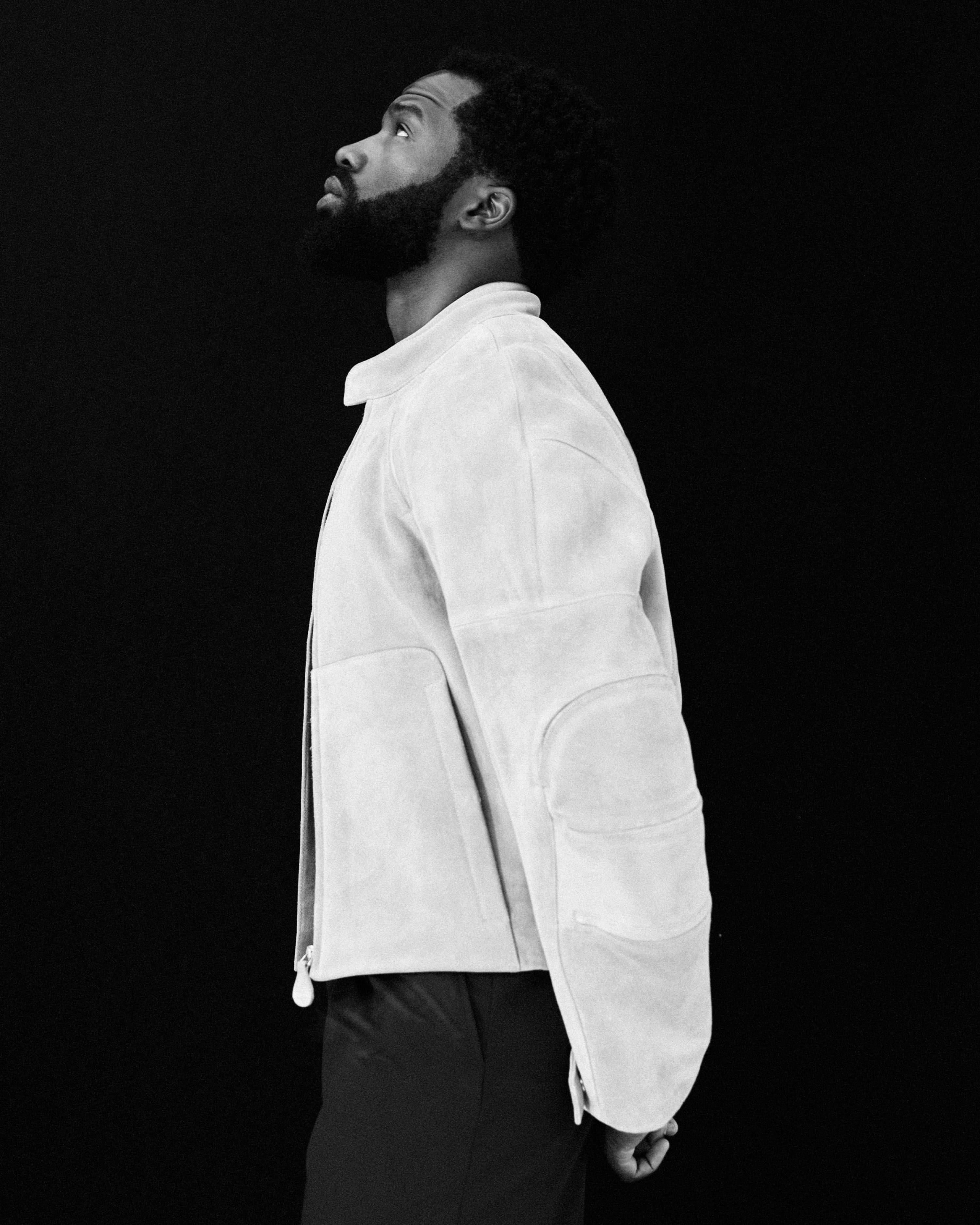
Ṣọpẹ́ wears all clothing Jacquemus
The film finds its setting in June 1993 – Nigeria’s former capital, Lagos, is just days beyond the nation’s first presidential election in a decade, after a 1983 military coup plunged the country into authoritarian rule. The democratic campaign was, and still is, considered the freest and fairest vote in the country’s history. After years of strife and despotism, the majority win for the Social Democratic Party’s Moshood Abiola and his platform of national unity saw the optimism among the Nigerian people reach an apogee.
After an eventful and enlightening day in the city, discovering the richness of Lagos and bonding as father and sons, Folarin and his two young children, Aki and Remi, are in a beer parlour, surrounded by their father’s friends, celebrating what they think will be a turning point in the future of their country. But as the volume on the bar’s TV is turned up, a sinking sense creeps inwards. The results have been unjustly annulled due to alleged corruption, and the military will remain in power. Dismayed, disappointed, and dejected, Folarin and other inhabitants of the bar let out a cry of anguish.
It’s a literal and spiritual climax in the film, and a moment in its making that resonated beyond performance for Dìrísù and the wider cast, registering with the aching desire for change that still lingers in the country as expansive inequality, political corruption, state violence and the threat of militant groups persist. “The scream that came out of Folarin in that moment was me figuring out what my frustration with the history and present moment of Nigeria is,” the actor reflects. “I love my culture and my people, but I always am ambitious for the country to be what it can be to fulfil its potential. I think that is a sentiment shared by so many people.” That collective sense of urgency played out in real time in between the directors’ cues. “I remember shooting that sequence and everybody – all of the supporting artists who were in that scene – gave a universal cry. They were instructed to do that, but if anybody was thinking about what they were responding to, then I think it came out of the pits of their bodies as well. It was so difficult for the ADs to call cut on the scene. The emotion that was building and broiling was so loud, a proper cacophony, that they had to use sirens to quiet everybody down. It was interesting, the bubbling up of that scene representing that moment in history where people took to the streets to continue to cry out and protest what was happening.”
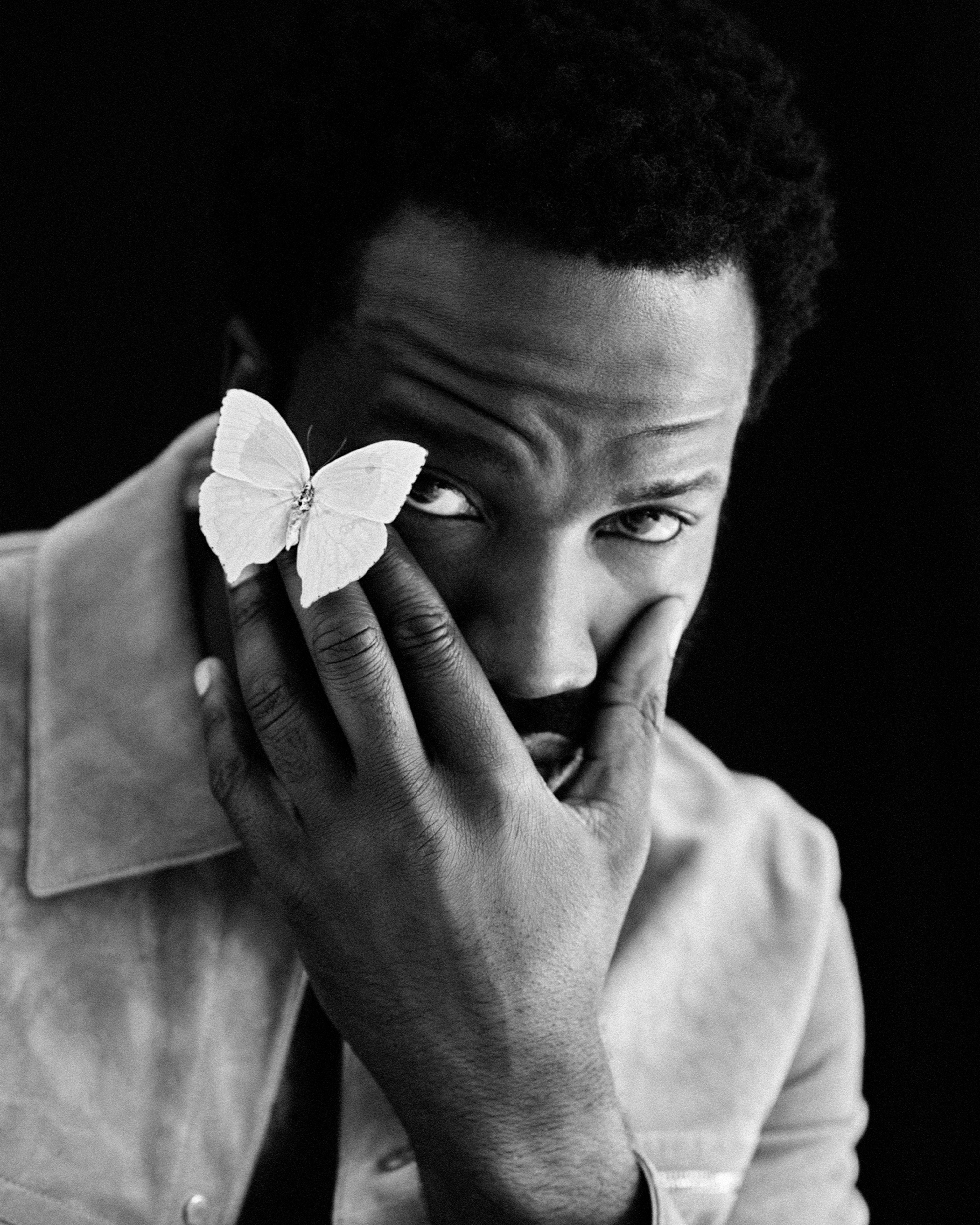
Ṣọpẹ́ wears Suede shirt Hermes
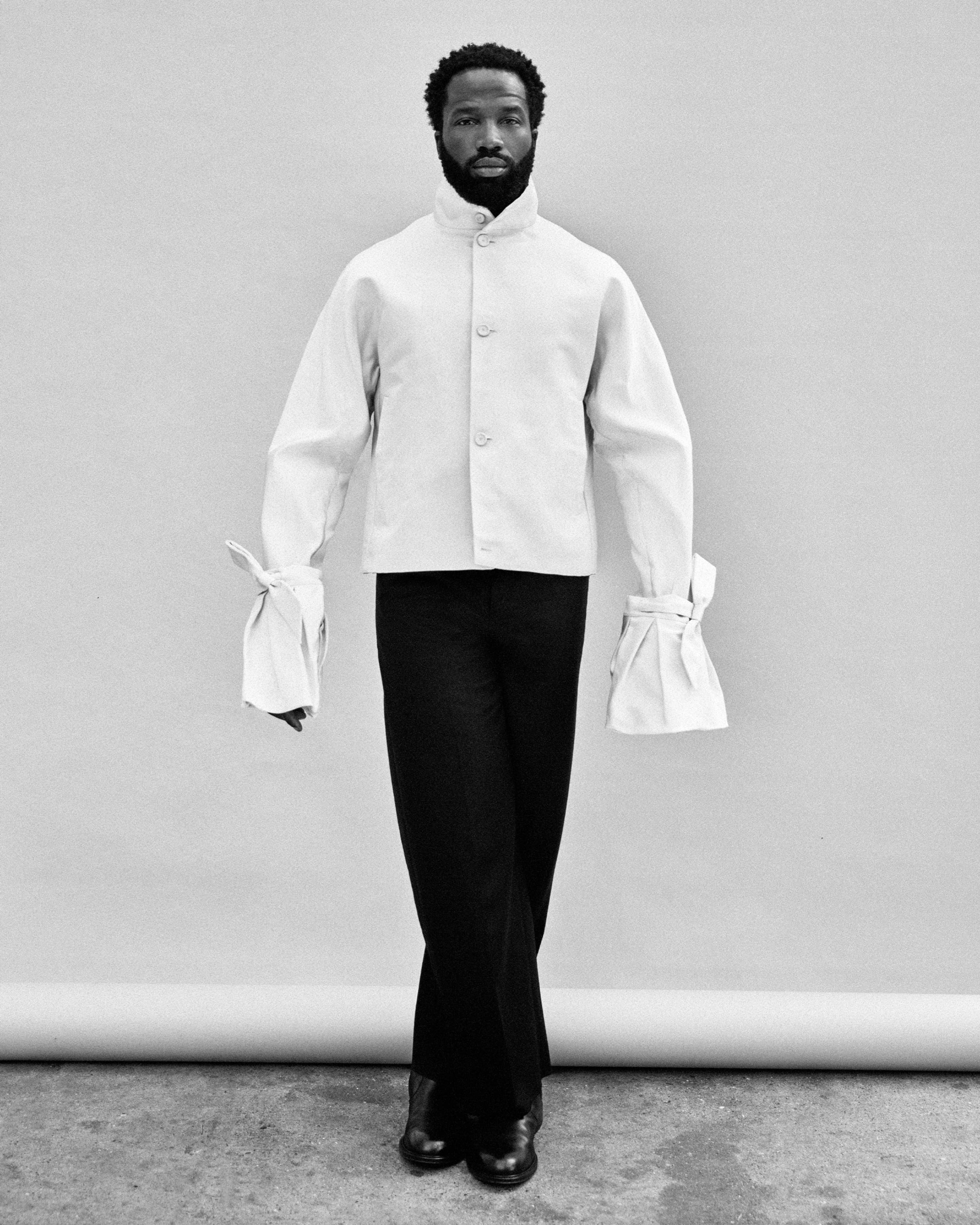
Ṣọpẹ́ wears all clothing Dior Men
Channelling the emotions of Folarin was aided for Dìrísù both by looking inwards and at the lives of those closest to him. The reserved gravitas he imbued into the role was inspired by an anecdote from his father. “He may not forgive me for sharing it with the world,” he chuckles. “But [he told me that] his father was a disciplinarian, and you could tell from the look on his face exactly what it was that he wanted you to do. There’s an element of that relationship between fathers and sons in Nigeria, typical of Yoruba culture, especially, where, as a man in control, you should not have to do too much to be understood or heard or to be correct. And so I suppose some of the restraint of Folarin comes from there.”
The thread of family and, more specifically, the relationship between fathers and sons that runs through the film is only intensified by the fact that the writing is semi-autobiographical for Akinola. As such, one of the sons, Aki, shares his name. It meant that Dìrísù was, ostensibly, attempting to capture the essence of the director’s own dad. A daunting task, you might expect? “It was a great liberation for me, actually,” Dìrísù smiles. “In early conversations that we had, [Davies] told me where the story had come from. He told me what his relationship with his father was. A lot of the film deals with memory, and the fallibility of memory, because he was very young when his father passed.”
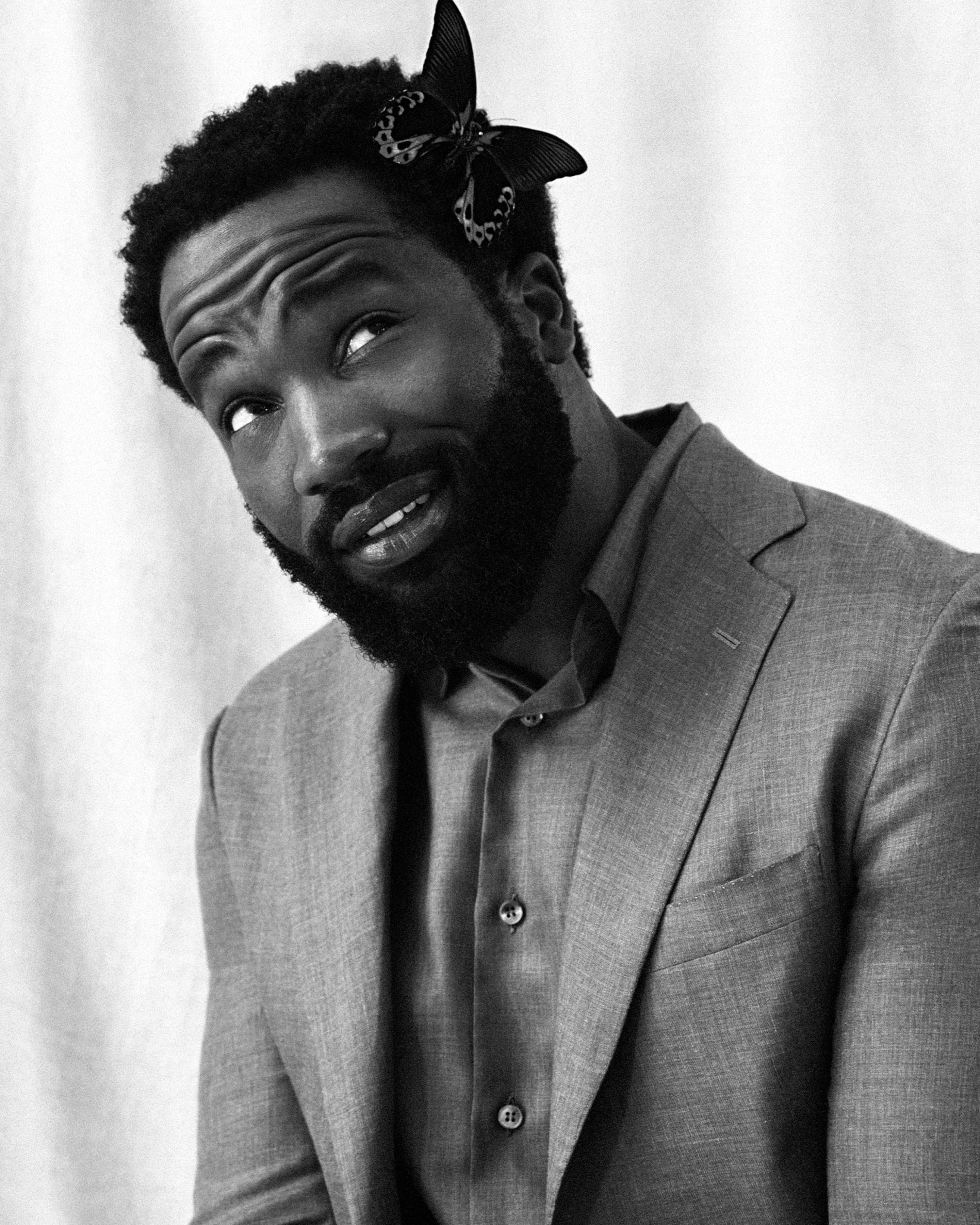
Ṣọpẹ́ wears all clothing Brioni
Rather than be bogged down by the weight of depicting a bona fide version of Davies’s father, Dìrísù found solace in forming his own Folarin at the instruction of his director. “After having this really in-depth conversation about what he had heard anecdotally about his dad and the man that he had crafted him to be in his head, at the end of the day, he said, ‘You’re not playing my dad, so don’t worry about that. This is the effect that I want the film to have, and this is what I’m carrying inside of me and what I want to transmit through the film. But I’m not going to give you recordings of my father, and I don’t want you to embody him. These are his qualities and characteristics, and these are the things that I’d love to explore about masculinity and the patriarchal nature of Nigeria. But you’re not playing my dad.’ It gave me a great exhale, because I would have always felt like I wasn’t doing him justice. No one can be your father, you know. We all have very different, some amazing, some not so amazing relationships with our fathers, and they inform who we are. And trying to emulate or recreate that is always going to be slightly dissatisfying for better or worse.”
His award-worthy portrayal of Folarin is among the most disciplined and understated performances you’ll see this year – one bound to garner acclaim beyond which Dìrísù has experienced prior. It’s much deserved and has been a long time coming. Born in North London before moving to Luton as a teenager, acting was always an undercurrent in the world of the academically-inclined Dìrísù. Excelling at economics at school, he opted to pursue the subject at the University of Birmingham – but not just because of the quality of the course. Alongside a passionate pursuit as the quarterback of the American Football team – a sport that “caught [his] heart” – it was the university’s drama department and an aspiration to cut his teeth with the best that persuaded him to base his studies in the UK’s second city. “[The department was] top two in the country alongside Warwick, I believe. And whilst I wasn’t going there to study drama, I knew that if the drama course was good, the people I would be doing extracurricular drama with would be of a decent level.”
After graduating, rather than pitching up in Canary Wharf – “[an economics career] wasn’t really the thing that I wanted to dedicate the rest of my life to,” – Dìrísù immediately pivoted to the arts. He spent over a decade hustling, mastering his trade in short films and modest parts in TV shows like dystopian sci-fi Humans, war drama The Halcyon and an episode of Charlie Brooker’s deliciously daring Black Mirror. Now, the actor looks back fondly. He’s grateful for the opportunities, dedicated to self-improvement, and suitably au fait – for better or for worse – with the pitfalls and pleasures of his chosen profession.
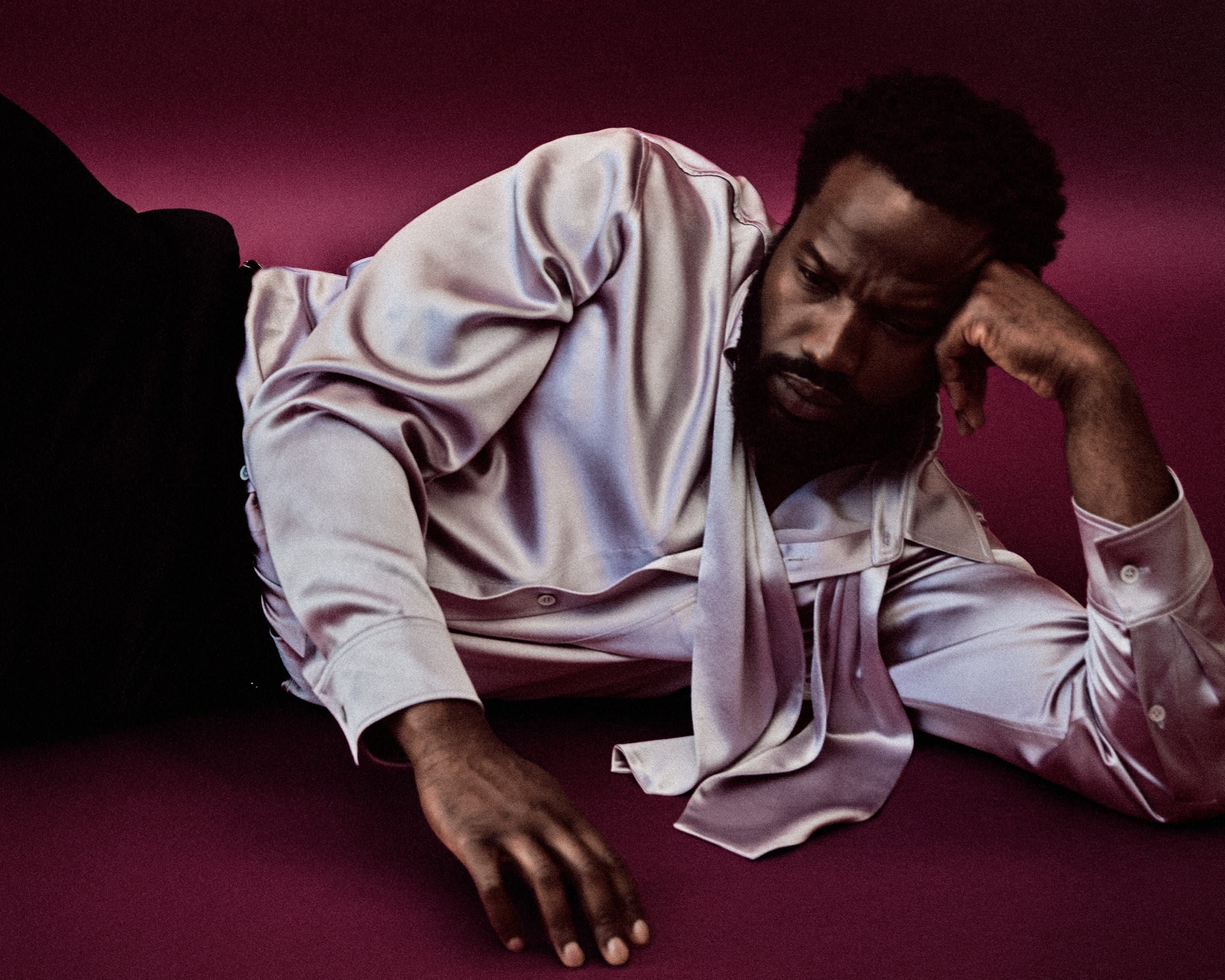
Ṣọpẹ́ wears all clothing Solid Homme
“I was a real believer,” he contemplates on his twenties. “I didn’t go to drama school and was not a child actor, so I was really looking forward to earning my stripes. I don’t think I was ever super frustrated that I was never the lead. I was so blessed to be able to do what I love. I think it informs my attitude and relationship with my career now. I know I have to keep working hard. One day, I’ll be able to create opportunities for myself, but that will still be alongside chasing and taking opportunities that are afforded to me.”
He continues resolutely: “I know how short life is, how temporary our human existence is, and I also know the industry. Art is inherently subjective, and the reason that people get jobs is not always because they’re brilliant. It might be because they’re too short or too tall, or the chemistry doesn’t work with this other person. I’m just aware that it’s fragile. So I’m going to do my best and enjoy it as much as I can.”
In 2020, Gangs of London transitioned Dìrísù from a jobbing actor to TV mainstay. Helmed by creator Gareth Evans – then recently anointed sovereign of action sequences, fresh off the back of his brilliantly brutal The Raid and even better sequel – the Sky Atlantic show’s cast was an assortment of familiar faces, from Game of Thrones’ Michelle Fairley to Peaky Blinders’ Joe Cole and I May Destroy You’s Paapa Essiedu, all chess pieces in a gripping tale of revenge, familial ties and the capital’s criminal underworld.
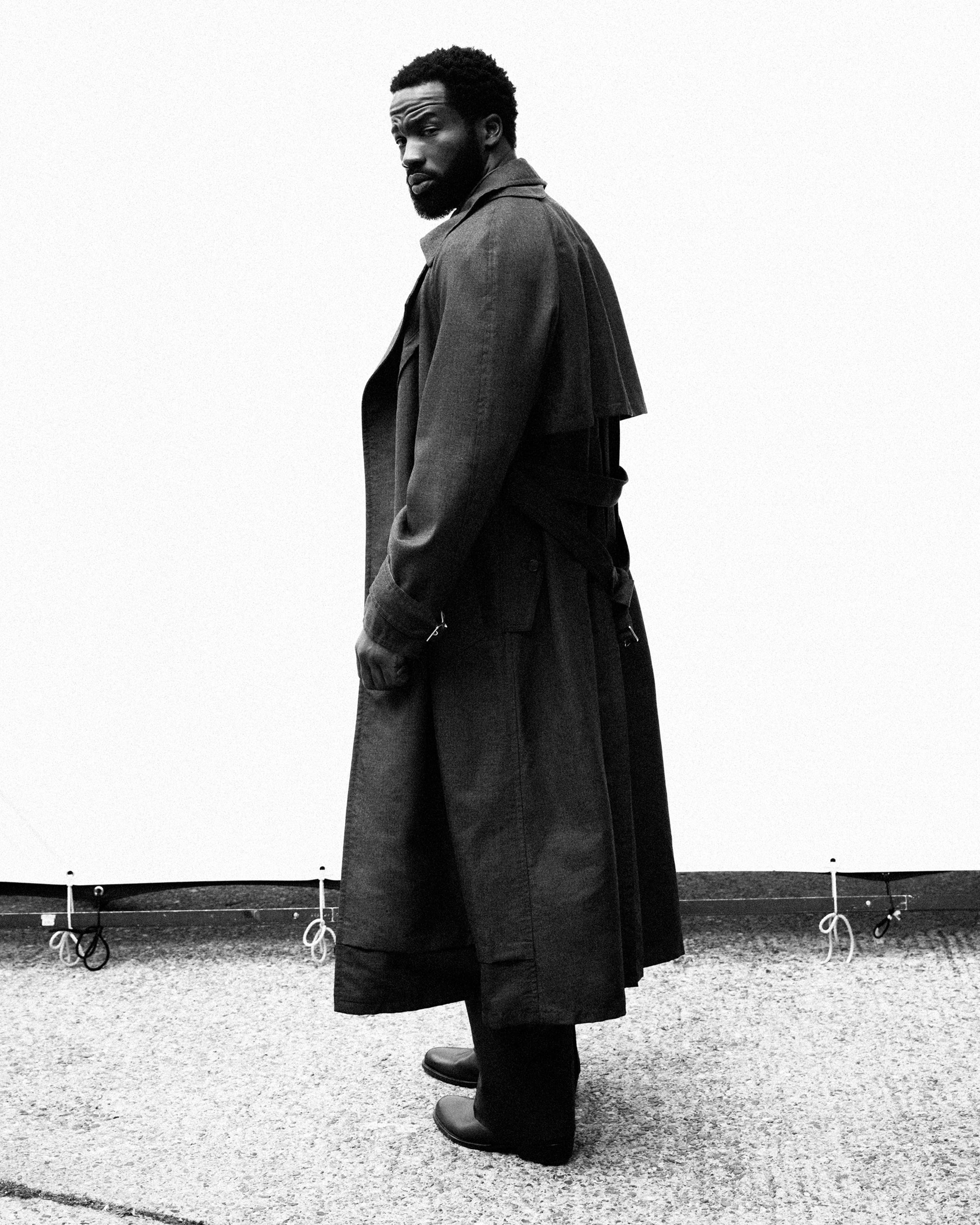
Ṣọpẹ́ wears trench coat & trousers Lanvin; boots Manolo Blahnik
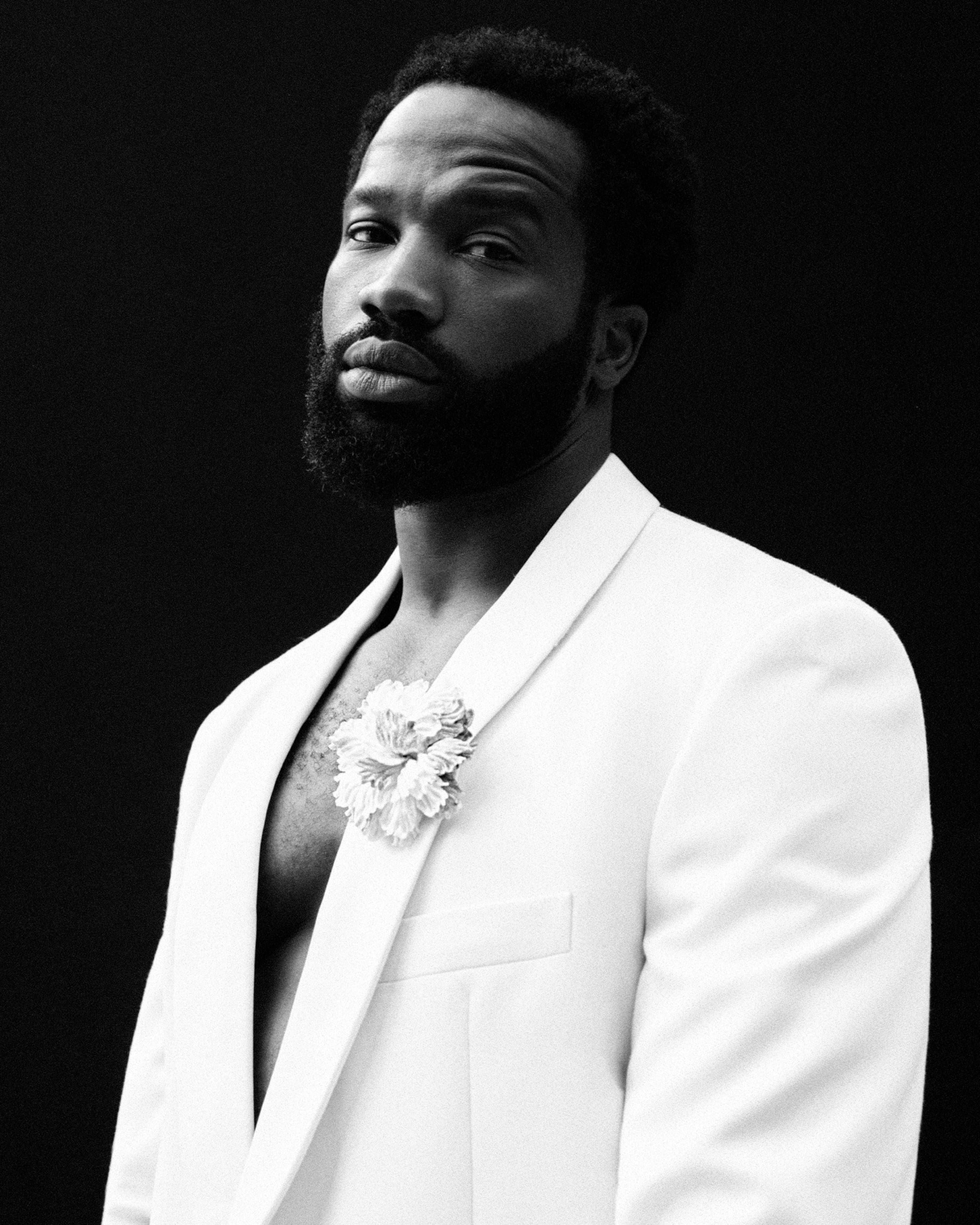
Ṣọpẹ́ wears wears blazer PRADA; corsage VV ROULEAUX
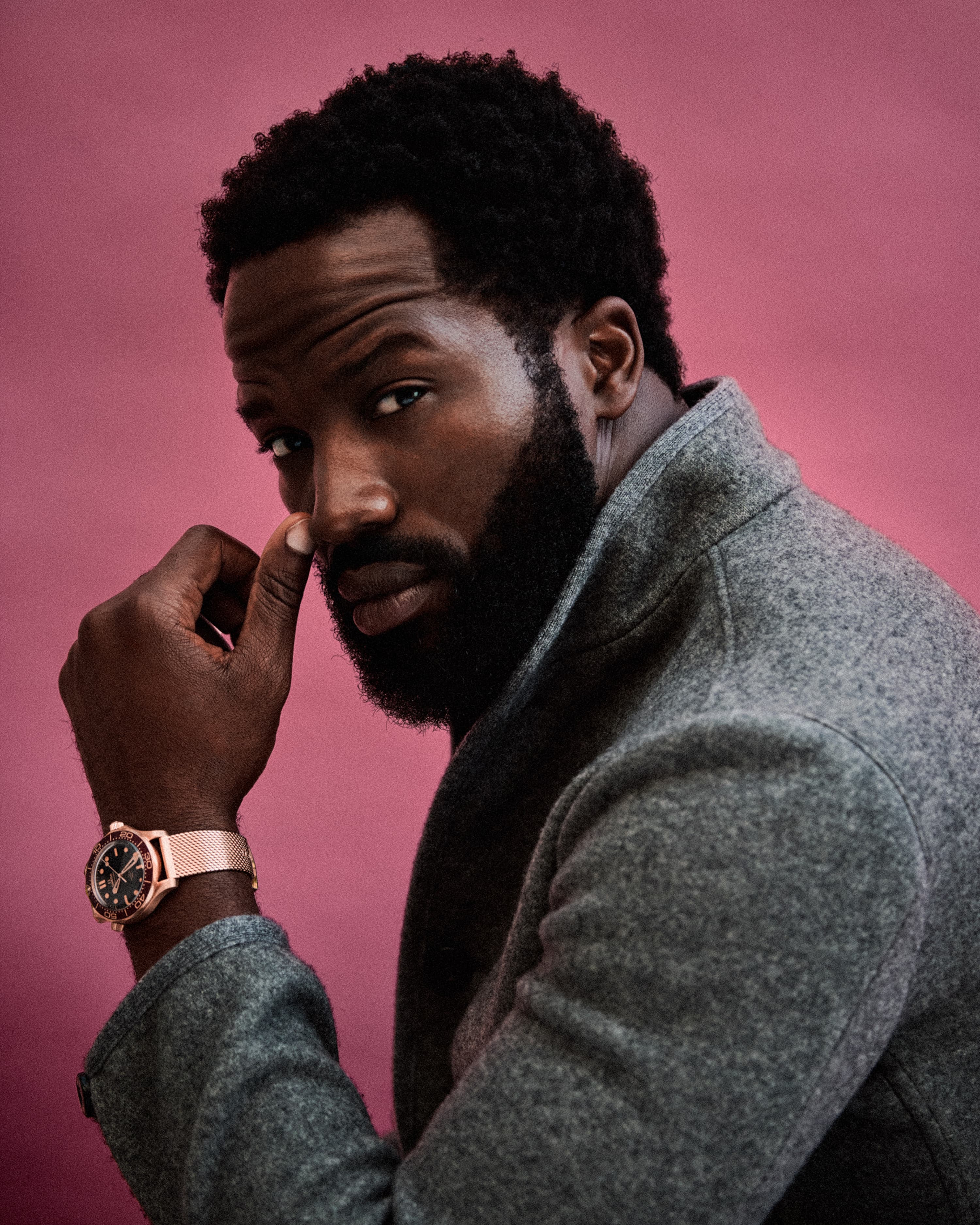
Ṣọpẹ́ wears jacket Zegna; timepiece Omega
Dìrísù is a realist – “I try not to have any expectations of anything, so I don’t get disappointed” – but couldn’t help but be excited by the project’s potential. “There was something really special about reading the script for the first time and meeting Gareth and [co-creator] Matt Flannery in the audition room. It was the way that they spoke about it, and the way that I visualised it from reading the script. It felt like it had the potential to be really huge.” The word Gareth kept coming back to was “‘opera.’” “Not as in soap opera,” Dìrísù clarifies. “A Shakespearean approach, bringing that to the screen but in a modern setting. It was a massive milestone and turning point in my career. I’m really enamoured with everybody that I get to work with on that series.”
Gangs of London has fulfilled, or even transcended, its initial promise. On screens for five years now, it’s become a crime drama staple and following its third season’s release in March, was renewed for a fourth outing. While the show remains in good health, its writers show little trepidation when it comes to killing off its central characters, so you could take Elliot’s enduring vitality in London’s underbelly as a sign of the indispensable presence of Dirisu at the crux of many of the plot’s finest moments – whether as its heart, its heartthrob, and, often, conscience.
However, his moral compass doesn’t negate his mettle when faced with gangland’s physical demands. “The truth of the matter is I have a physicality about me,” he shrugs coolly, discussing his ability to master outlandish stunts and intense action set pieces, which often see him vastly outnumbered but still availing due to superior skill. “I’ve played contact sports since I was about 10, I’ve done karate and judo, jiu-jitsu and muay thai. So I think that maybe my physicality lends itself to that genre. The genre of action, a genre of fighting. So sometimes you have to lean into the talents and skills that you have in order to create pathways for other things.”
Despite his natural inclination for a fast-paced fictional realm, as My Father’s Shadow exemplifies, Dìrísù is far from boxing himself into one sole genre, instead “trying to pursue a diversity of roles, doing as many different things as I can.” And now, with his rich, tender turn in My Father’s Shadow, any argument for Dìrísù being a one-trick pony feels nonsensical. It’s a notion furthered by the actor’s other substantial project in autumn 2025 – Black Rabbit. Starring alongside Hollywood cornerstones Jason Bateman and Jude Law, the crime drama grappling with greed, business, and brotherhood is Dìrísù’s first big US production, something he was acutely aware of on his first day on set. “Normally, work is a sanctuary, but I was very cognisant of this being my first job in the American world. The money is bigger, the turnover is bigger. They fire people out here,” he jokes.
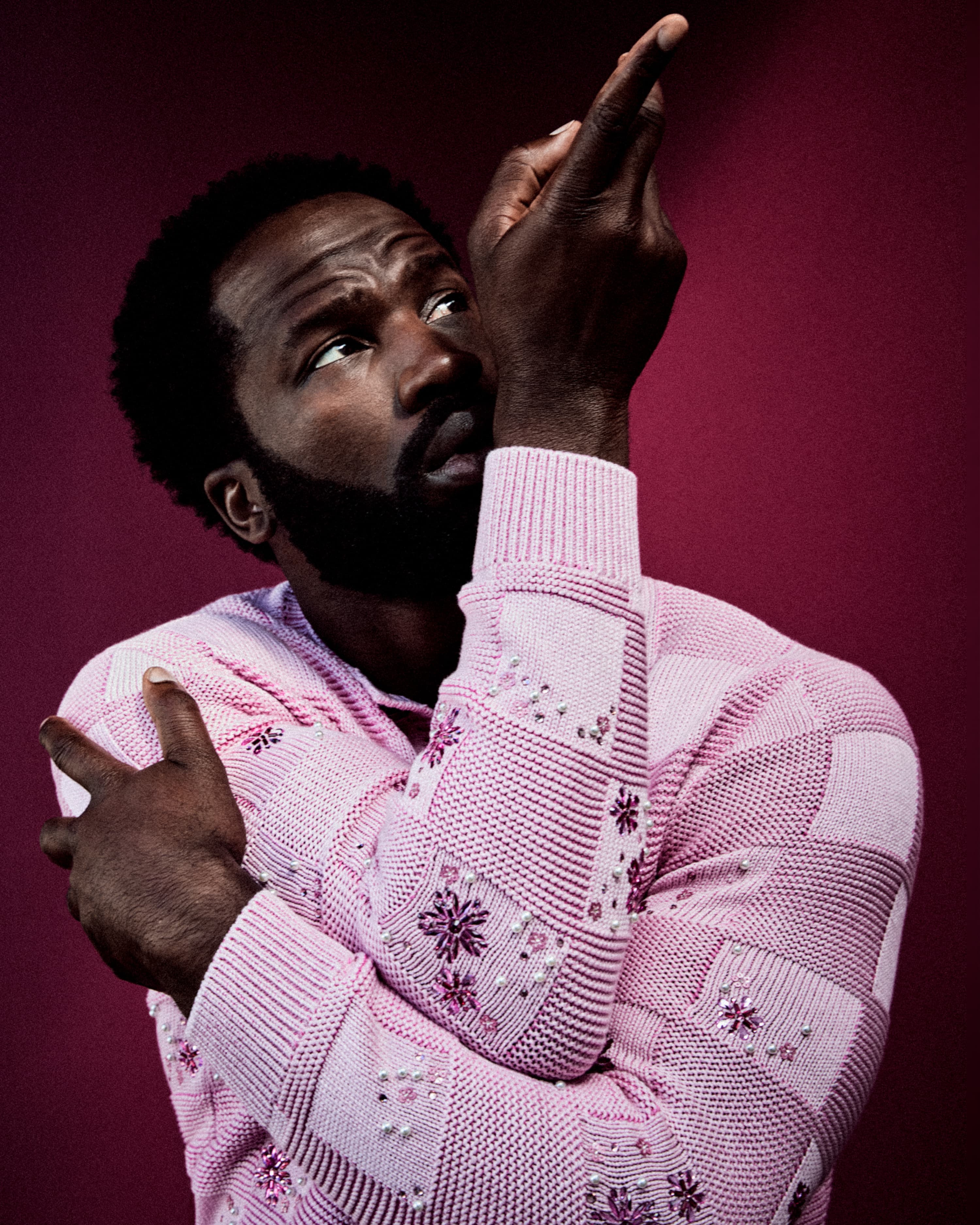
Ṣọpẹ́ wears cardigan Louis Vuitton
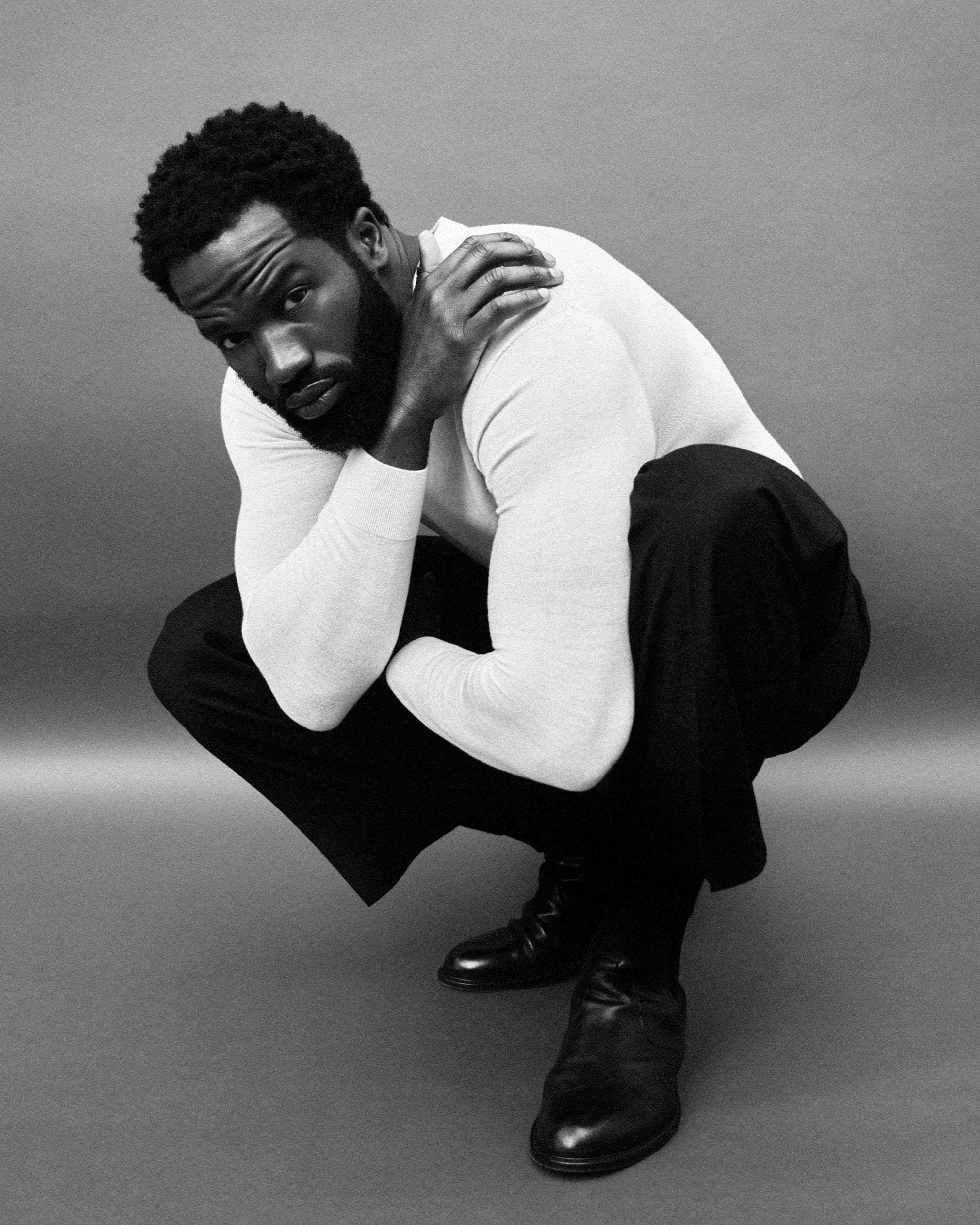
Ṣọpẹ́ wears all clothing Dior Men
Dìrísù rose to the challenge, however. His turn as Wes, a musician and entrepreneur, is eccentric and charismatic, a comedic spark in the dark, oft-violent setting he finds himself in. He is a character sculpted collaboratively, unlike anyone the actor has stepped into before. “He’s definitely more flamboyant, a bit more luxurious, looser,” Dìrísù mediates. “And it was a lot of fun playing him. Working with Amy [Westcott], the costume designer, really empowered me to create his aesthetic. It’s not that I wasn’t afforded the opportunity to do so before, but I had never allowed myself to take up that space in terms of really designing my character. I was grateful to be able to really collaborate with her.”
With his strongest performance yet in My Father’s Shadow and his first major US role, Dìrísù’s expanding portfolio seems to grow with no limitation. But what, for an actor unafraid of the climb, is the next rung on the ladder? The Bond rumours that surfaced around the release of Gangs of London’s first season are not subsiding, and the success of his tenure to date would seem likely to be dwarfed by whatever lies ahead.
But with a humility mirrored in his work ethic, Sopé Dìrísù’s equilibrium is grounded in the small things, and fixated on one overwhelming objective – simply bettering himself. “I’m still out here trying to earn my stripes,” he breezes warmly before bidding farewell and plunging back into his hectic filming timetable. “And I think that is an attitude that’s going to keep me hungry – not for one big breakthrough role, but just to continue to do the best work that I can and be the best cast or crew member that I can as well. Because I wouldn’t ever want to arrive, you know? I’m really interested in the journey of my career and the different alleyways that it can take me down, the experiences that I can have.” His mantra is concise – “be nice and do good work.” Whatever unfolds, “I’ll continue to try and do that.”
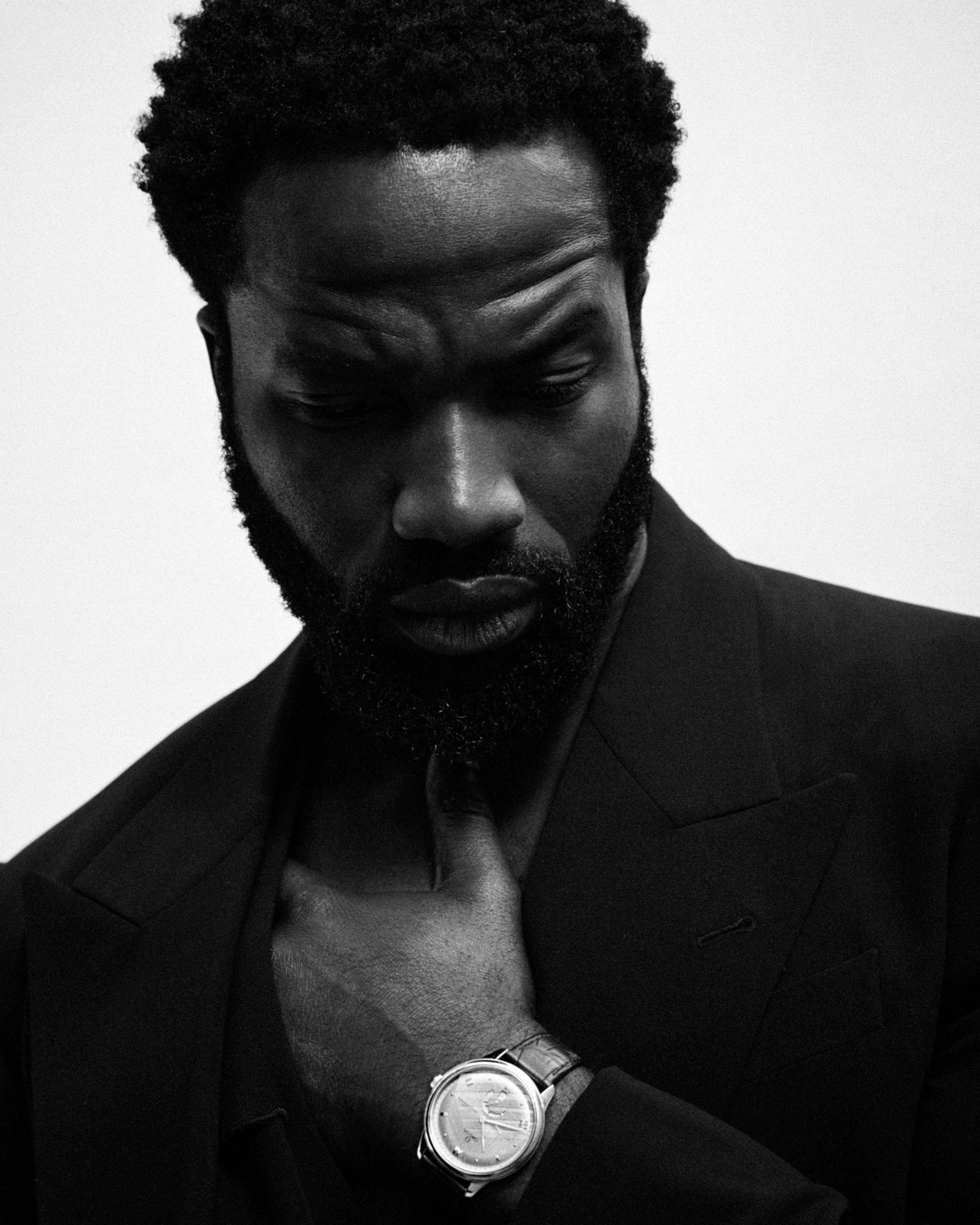
Ṣọpẹ́ wears suit Emporio Armani; timepiece Omega
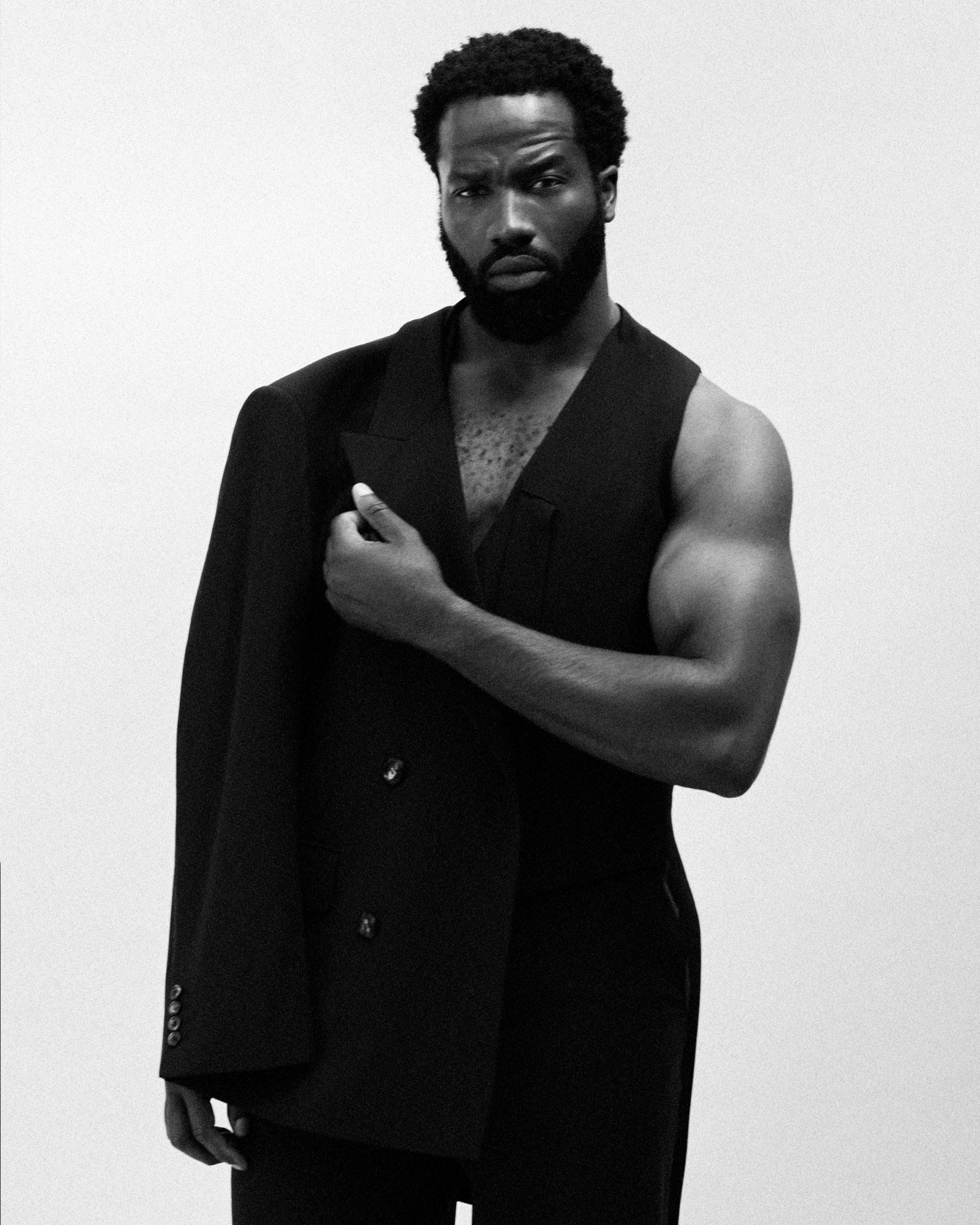
Ṣọpẹ́ wears suit Emporio Armani
Photography
Matt EastonStyling
Helen SeamonsGrooming
Dalila Bone at The Only AgencyPhotography Assistant
Harry BurnerStyling assistant
Roz DonoghueSpecial Thanks to
Loft StudiosEditor-in-chief
Luke DayArt Director
Michael MortonSenior Editor
Andrew WrightProduction Director
Lola RandallJunior Art Director
Natasha Lesiakowska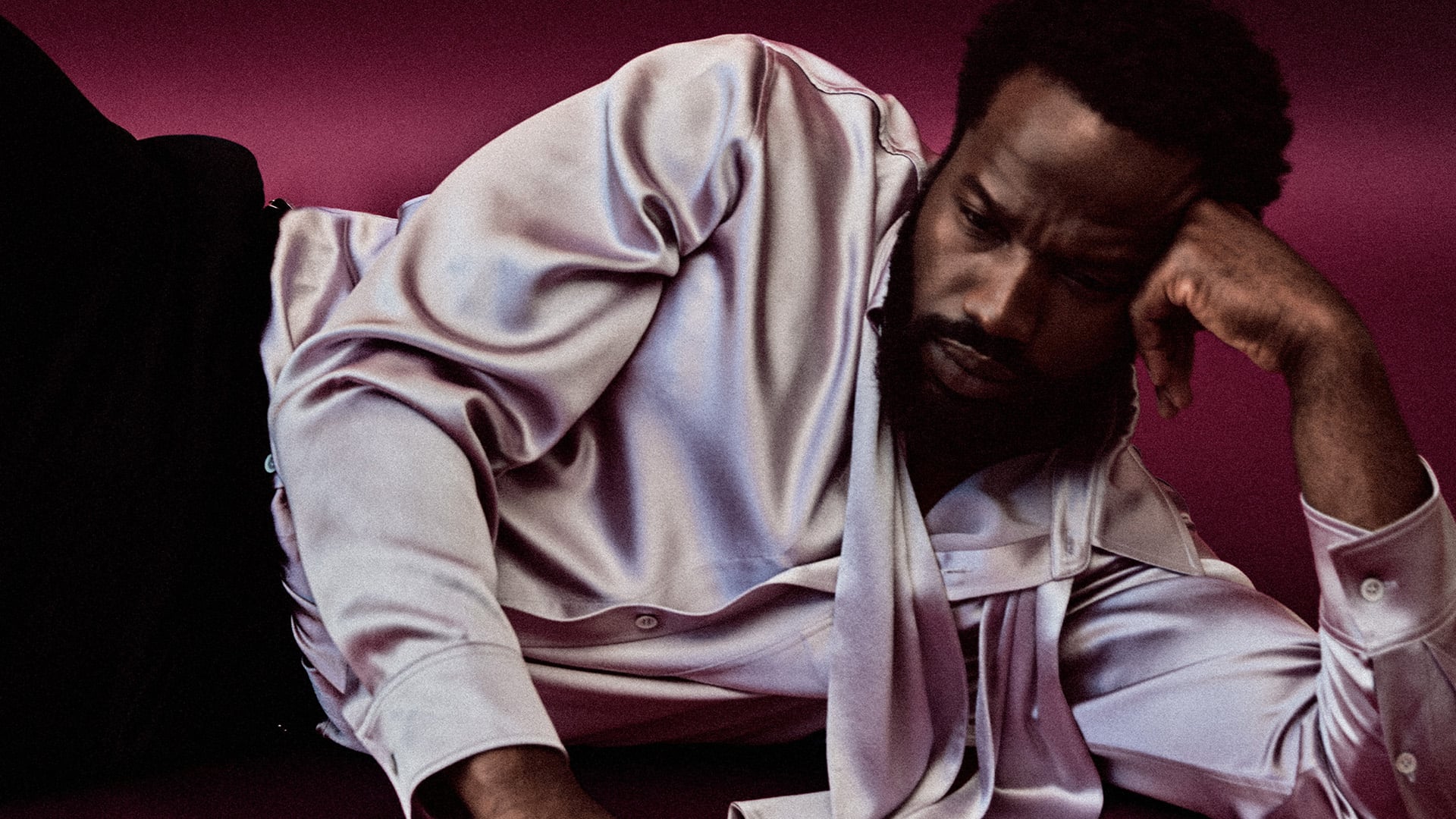
![Picture of “[The Bridgerton Press Tour] Is Like Being On Some Sort Of Hallucinogenic Drug”: Luke Thompson Is Next In Line](/_next/image?url=https%3A%2F%2Fadmin.manabouttown.tv%2Fwp-content%2Fuploads%2F2026%2F01%2FLUKE-THOMPSON-hero-768x339.jpg&w=3840&q=85&dpl=dpl_AFdUV7FFZp54nD5gj8N7N9KdTK66)
